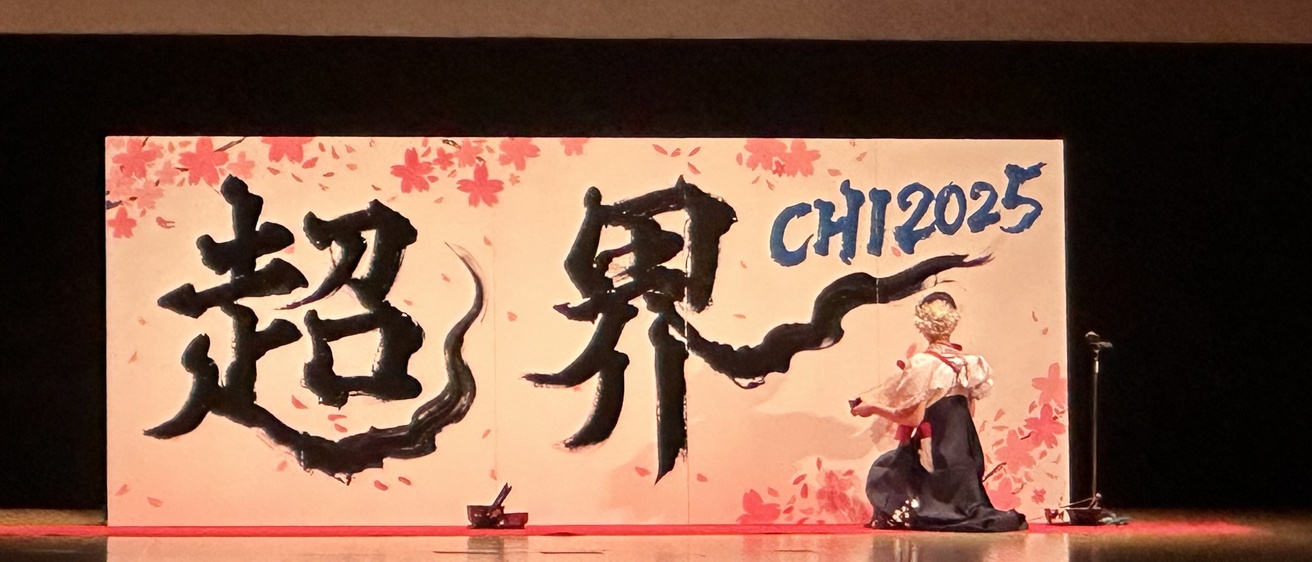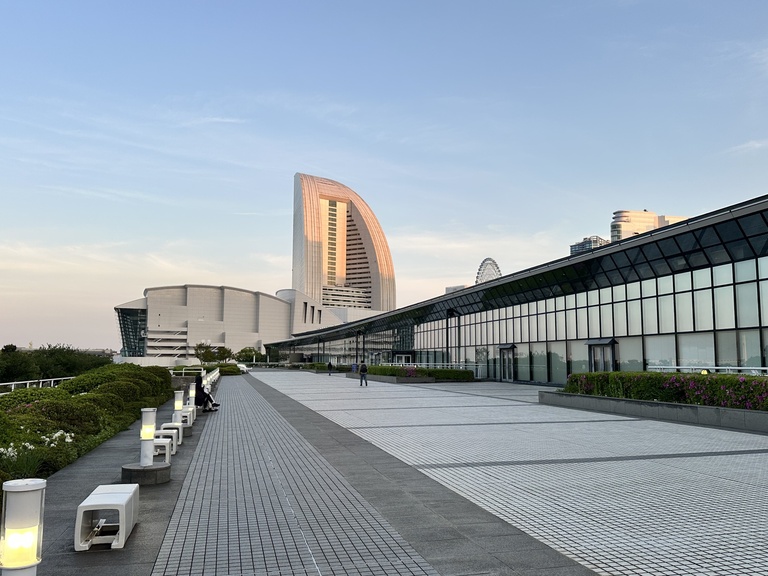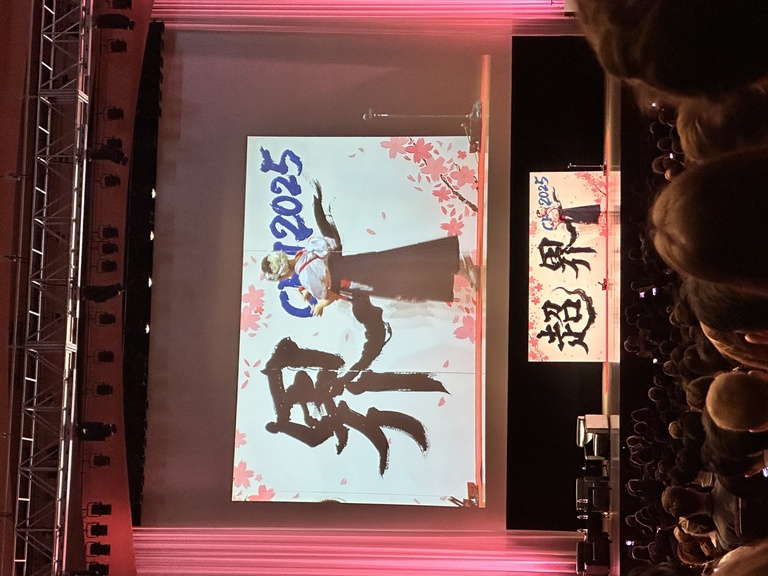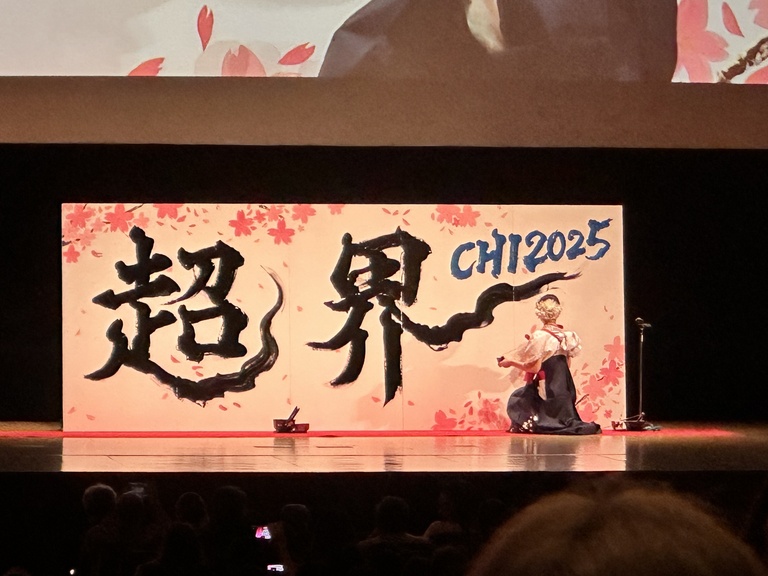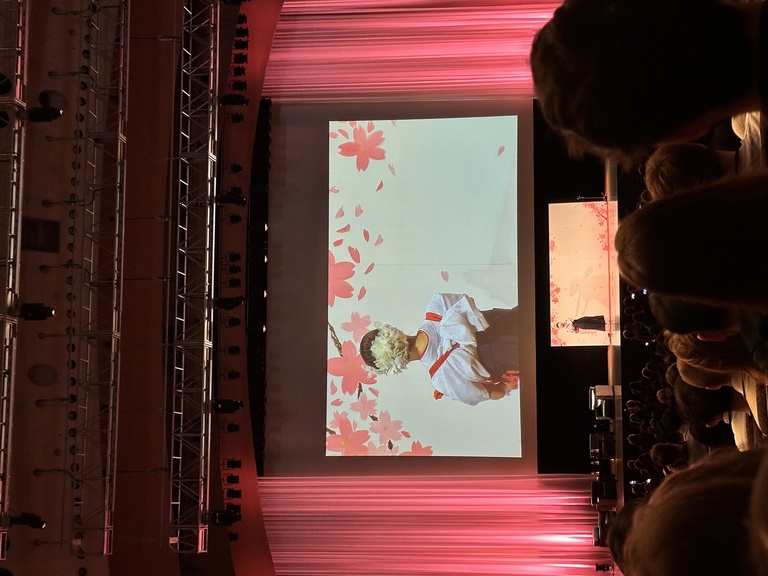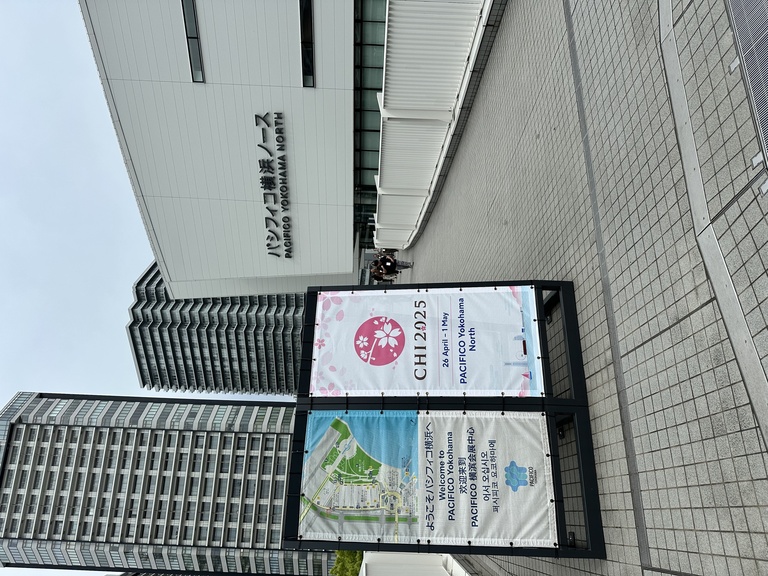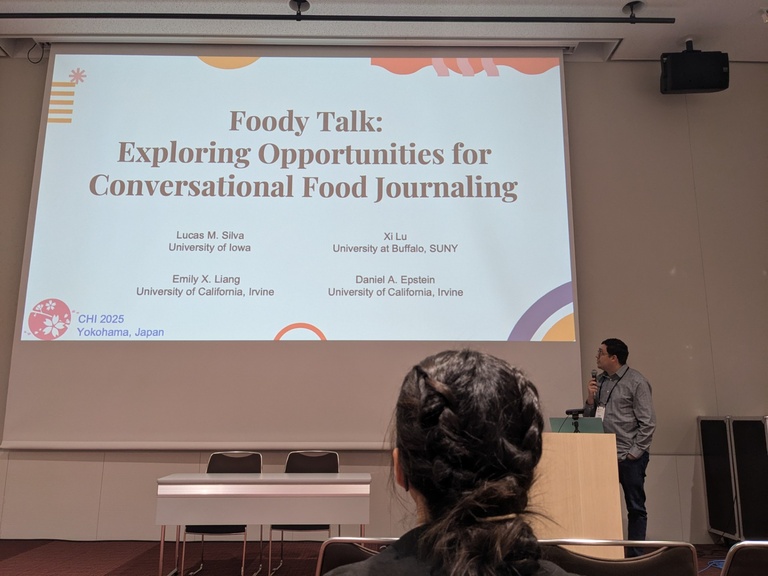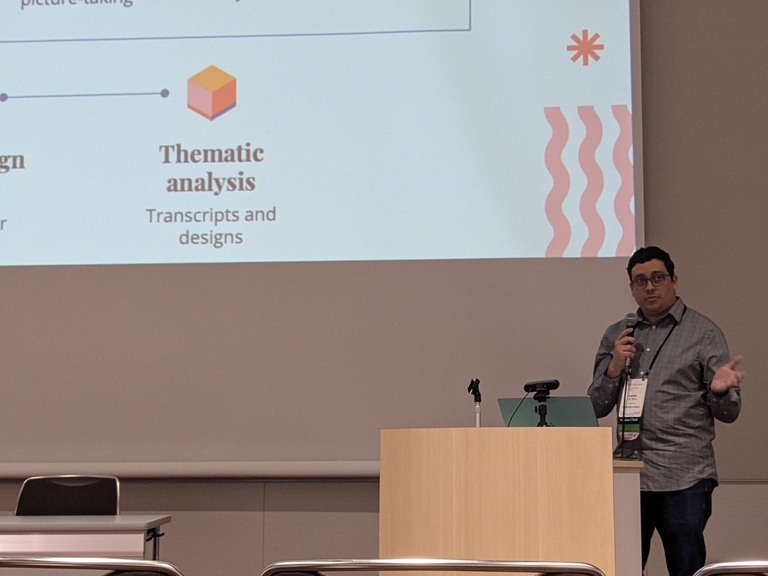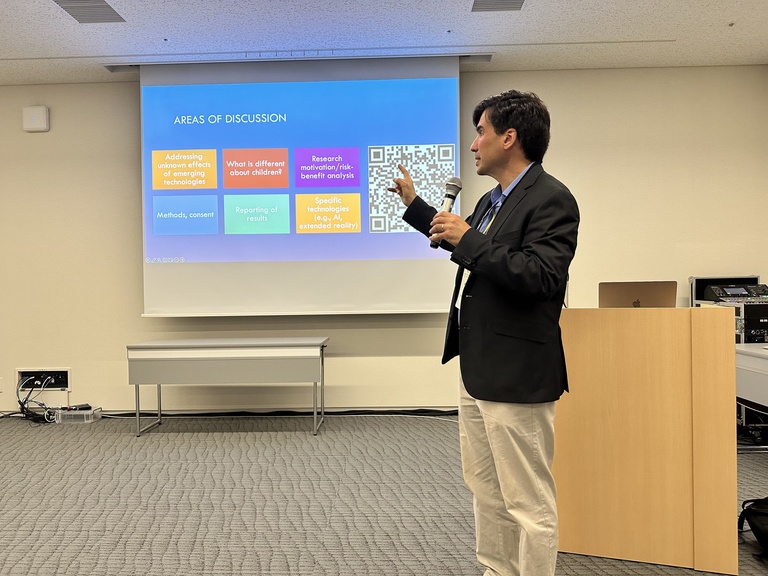Computer Science Professors Juan Pablo Hourcade and Lucas Silva attended CHI 2025 in Yokohama, Japan this April presenting their projects. This year's conference theme was Ikigai, which refers to the Japanese concept of a reason for living.
Hourcade presented his findings from his XR for Youth Ethics Consortium. Researchers from the University of Iowa, Boise State University, University of Minnesota, Northeastern University, University of Baltimore, and University of Maryland come together to develop foundational ethical principles for conducting research with youth for extended reality (XR) technologies.
Silva presented his collaborated research paper "Food Talk: Exploring Opportunities for Conversational Food Journaling" which promotes the use of conversational interfaces (CUIs) to make food journaling more natural and supportive. Through 33 co-design sessions, participants envisioned empathetic, adaptive CUIs that align with personal health goals while respecting context. Though concerns about long-term data navigation remain, the study points to new opportunities for more human-centered, goal-driven journaling tools.
What was it like preparing for CHI 2025?
Hourcade: For me, it involved preparing a presentation to kick off and organize the special interest group meeting I facilitated. I also had to coordinate with my co-organizers. In addition, figuring out the logistics of transportation in Japan and how to get to the conference venue.
Silva: It is quite fun, but a lot of work. I was an associate chair for CHI this year, so had been helping review papers for some time before the actual travel. During the conference I was also a session chair, which involves coordinating some author presentations and also took some time to prepare for. Aside from planning my conference attendance and the travel logistics, preparing to interact with a new location and culture, and some sightseeing is super fun!
With Ikigai as this year’s theme, were there any projects or presentations that particularly resonated with you?
Hourcade: I like the concept of Ikigai (related to finding purpose in life). When going to conferences like CHI and meeting people I am reminded that one of the main reasons I enjoy my job is that it enables me to help others through teaching, mentoring, and research. All these activities are meaningful to me.
Silva: There were so many great presentations! CHI is the largest conference in Human-Computer Interaction (HCI), so it is always really overwhelming with the amount of great people and great papers there (I think it was around 5400 people this year). I have at least 40 papers in my saved list, but one that really stood out to me was this one on an evaluative study about social play with children. I highly recommend reading it.

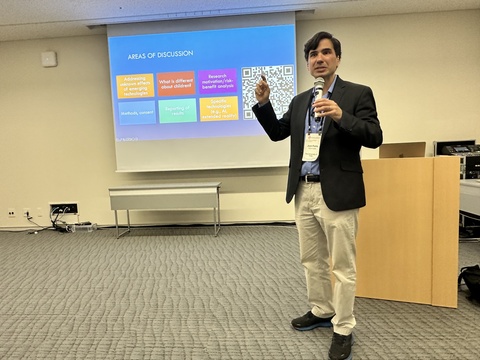
What advice would you give someone planning to submit to or attend CHI in 2026?
Hourcade: To write good papers you have to read lots of good papers.
Silva: Although an HCI conference, there is a quite a range of topics and research approaches that do well in CHI. Despite being so interdisciplinary, there are several expectations about structuring and writing a "CHI paper." My advice is to extensively read CHI papers and learn about the subcommittees (i.e., subareas you select when submitting). About attending, I recommend reserving hotel early (again it is huge and places close to the venue tend to run out of space) and navigating the conference program beforehand to select which sessions you will be attending.
What was your experience like in Japan? Any favorite moments you’d like to share?
Hourcade: I had a wonderful experience. I was surprised at how clean it was even though there are very few trashcans (people are responsible for their own trash). I also liked the design of appliances; I could easily figure out how to use them without understanding Japanese. In addition, I appreciated that they use automation to free more people to be available for tasks that require human interaction.
Silva: It was amazing. As expected, great food, clean, really pretty. It was also often confusing and a bit hectic. It was holiday season, which heightened the already busy — highly populated — city. But surprisingly, everything worked well despite the huge crowd. With the help of navigation and translation apps the transportation was manageable and not too packed, restaurants had available sitting, etc. I definitely will be going back more times!
What’s one thing you’d recommend to anyone traveling to Japan for the first time?
Hourcade: Get practice with polite words in Japanese; they will be appreciated and will help you reciprocate all the politeness you’ll receive.
Silva: The usual stuff: prepare to use navigation and translation apps (make sure you plan for cellphone connectivity), make reservations far in advance if possible, learn the basics of the language, map out the best stores and preferred restaurants to visit, etc. There are a lot of online videos and blog posts that help preparing.
